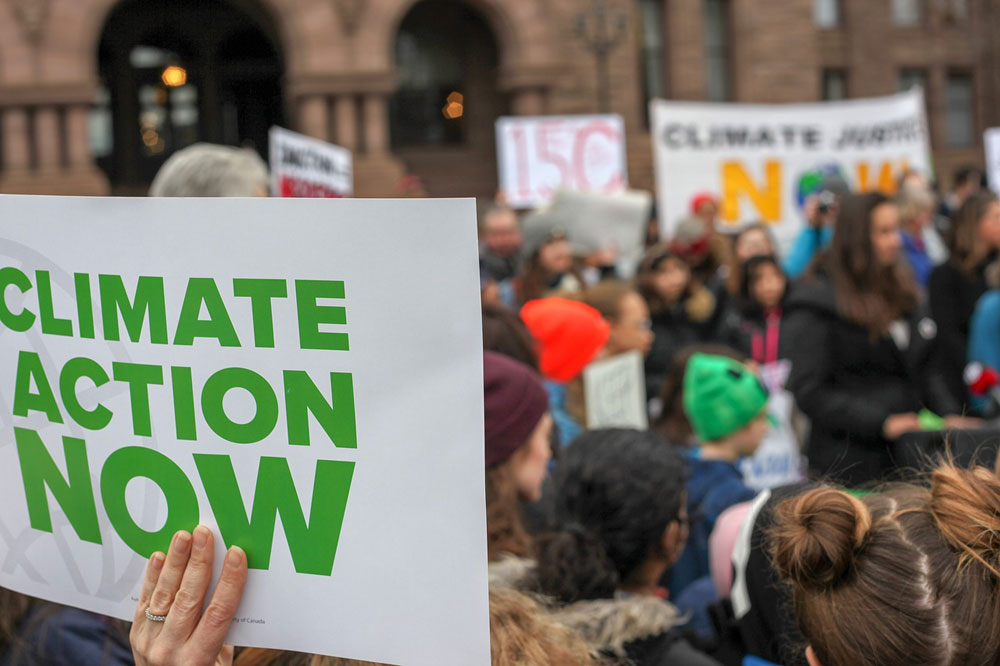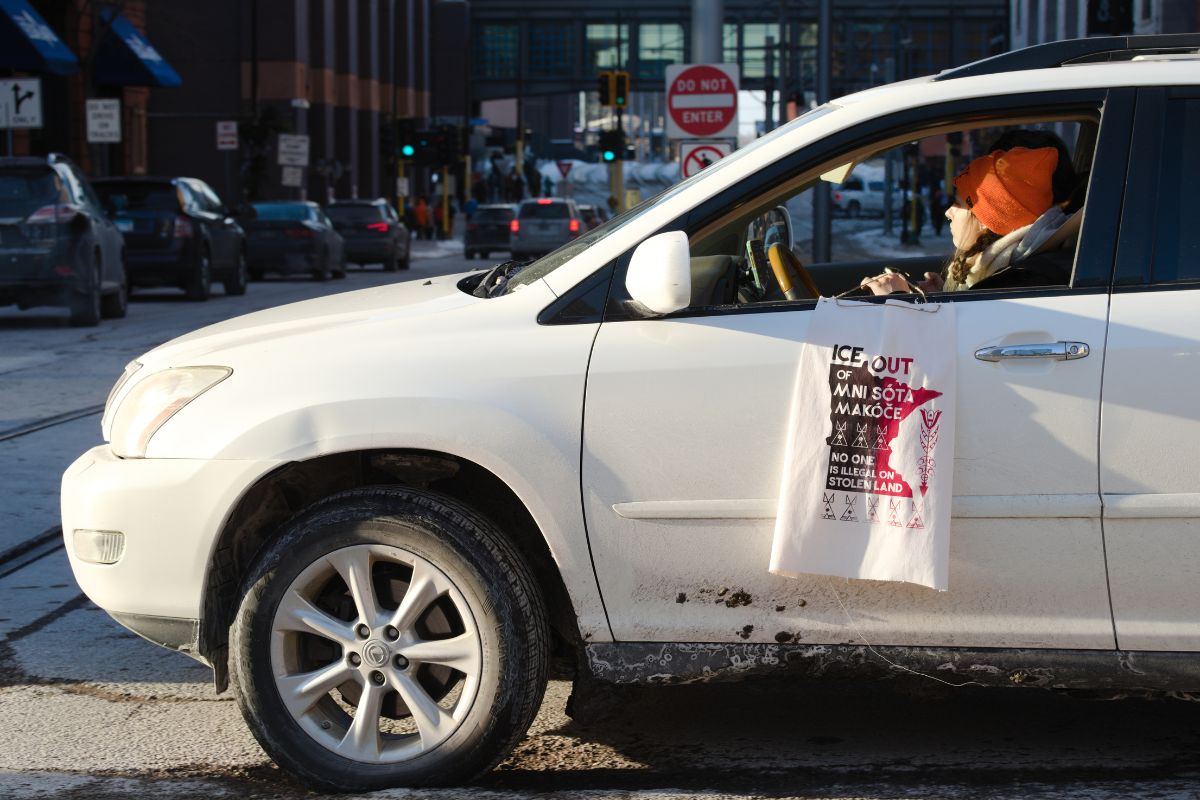
October 26, 2020; Teen Vogue (Drilled News)
Research from Tufts University’s Center for Information and Research on Civic Learning and Engagement (CIRCLE) and Catalist, a Democratic data firm, reports that in the 2020 presidential election, two-thirds more early voters under 30 had already voted in Texas by 11 days before Election Day than they did for the presidential election in 2016. It isn’t just the youth vote that is gaining notice, though; it’s also the youth of the people running for office.
For many of these young voters and candidates, climate change is the critical issue. The US Conference of Mayors released a poll in December of 2019 that found 80 percent of voters between 18 and 29 said climate change is a “major threat to human life on earth as we know it.” As a result, it’s inspired them to become activists.
For instance, seven years ago, organic farmers joined with environmentalists in Josephine County in southern Oregon to collect signatures to put a ban of a local cultivation of genetically modified plants on the ballot. They continued to advocate for the ban even as large corporations like Monsanto and Syngenta poured money in to stop it. The voters passed the ban in 2014 by 6 points.
“It was an amazing win for the community,” recalls Vanessa Ogier, a 28-year-old Josephine County climate activist.
But in 2015, the county was sued by commercial beet farmers, and in 2017, the ban was appealed as unenforceable.
“That radicalized me,” Ogier says. “That’s when I realized that we need climate sympathizers inside the government to get any serious work done.”
This year, Ogier ran for a spot on the city council of Grants Pass, the county seat, near where the Almeda Fire in September killed three people and destroyed nearly 3,000 homes in an area that already had a shortage of affordable homes. Ogier won her race on Tuesday with 60.6 percent of the vote.
It’s an uphill journey, running for office with a more progressive agenda in municipalities that lean right, but these young candidates believe their communities are ready to make changes for the climate, clean water, and environmental justice. Ogier campaigned for measures to assist residents to become resilient in the face of hotter summers with increasing wildfires. She is advocating for creating sustainable housing and an “energy action plan” that would reduce carbon emissions. Ogier wants to build a system of shelters to protect people without housing from the rising temperatures; she fears this year’s wildfire is a foreshadow of what’s to come if the city council doesn’t start to take action on climate issues.
“We will continue to be plagued by droughts, wildfires and smoke, a lack of snowpack in our mountains, and warming rivers,” she says. “We need to recognize these trends and adapt to them.”
It is not just an increase in wildfires, either. On the Atlantic Ocean side, where Nicole Hamm, 27, ran for office, there have been 27 named storms in 2020, 11 of which became hurricanes. Hamm’s district in Jacksonville, Florida, is Republican. There has not been a Democrat elected to the city council from her district in 17 years, but she felt voters were open to her ideas for climate action, such as investing in resilient infrastructure to protect local homes and businesses from flooding caused by rising sea levels, and developing urban green spaces.
Sign up for our free newsletters
Subscribe to NPQ's newsletters to have our top stories delivered directly to your inbox.
By signing up, you agree to our privacy policy and terms of use, and to receive messages from NPQ and our partners.
“It’s different when people start to see [climate change] affecting their pockets and their well-being,” Hamm says. “They can’t avoid it anymore.”
Hamm was hoping to target environmental social injustice—communities of color that have had failing septic tanks for years, damaging the drinking water. “When you drive over the bridge there, you can smell the water and sewage,” she says.
Unfortunately, Hamm lost. Still, the need for clean water is an issue Florida voters can see, with storms causing sewer systems to overflow and failures of the power grid dumping raw sewage into streets and waterways, as 11 million gallons did during Hurricane Matthew.
Rayonte Bell, a 22-year-old activist, ran for a seat on the Berrien County Board of Commissioners in Michigan, where there are water problems, too. The county sits on the southeastern shore of Lake Michigan, where stronger storms have eroded the shoreline. Bell advocates sustainable solutions and climate-resilient infrastructure.
“Using environmentally safe practices is the best approach” to solving these problems, says Bell, “rather than trying to put a band-aid on them. We need to think long term.”
Lead was discovered in the drinking water of Benton Harbor, a majority-Black community located just north of where Bell campaigned in St. Joseph. While the source of the water—Lake Michigan itself—may be safe, as is the case in Flint, Michigan, corrosion in old pipes that have not been replaced has contaminated the water that comes out of the tap. Infrastructure dollars need to be spent in the community.
Bell noted that voters are willing to talk to a young candidate, offering that they are concerned about the cost of fixing issues like water quality but aware those problems must be fixed.
“We need to acknowledge and address that inequity,” Bell says. “If we don’t, Black people are going to continue to be the most vulnerable to climate change.”
As of Thursday night, Bell was tied with the other candidate, Bruce Gorenflo, for the open seat; each has 3,934 votes. The next step is for the Berrien County Board of Canvassers to meet—in the case of a tie, lots will be drawn.
Younger candidates can look to New York for an example of a younger candidate who succeeded. Nassau County legislator Josh Lafazan was the youngest person to ever become an elected official on New York’s Long Island when he won a spot on his home town school board at the age of 18, and then became the youngest official elected in the county at the age of 23. He is now 26, still a county legislator, and last year took on an adjunct teaching position with a college seminar course called “Running for Office in the 21st Century,” addressing affordable housing, student loan debt, and climate change.
“There are major threats facing young people, where it’s time that we’re going to have to step up and demand that our priorities are met. The surest way to do that is to elect representatives from our own generation,” Lafazan says.—Marian Conway












